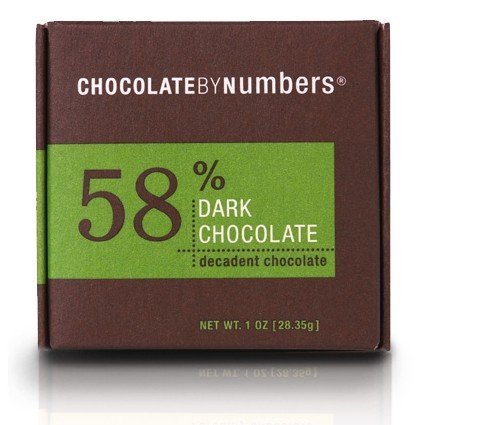Only 58% of protein can be converted to energy
Options
Replies
-
No idea where you got this from.
Thermogenics of food conversion requires up to 30% for protein, 15% for carboydrates and only 2% for fat, which is why fat is stored so easily in the body when consumed to excess.
Eating 100g of protein will at minimum utilse 70% of what you've just eaten not 42%.
Protein alone will not prevent muscle loss, nitrogen and a few useful amino acids play the part as well as carbohydrates and glycogen.
I see you are the person on the cereal diet, I don't think protein thermogenics should be a concern for you at the moment considering what you're eating, you are not getting the correct nutrients, unless your post about the cereal diet is inaccurate.
If you dont believe me then go with what LexyDB said in the second post at 30%. The entire point of this post was to show that protein calories can help you all lose weight. This was not supposed to turn into some type of diet war.0 -
No that's a myth. The body is powerful at at its job and should be able to digest protein. Though not as fast but still it can digest all the protein. The body does not waste its nutrients.0
-
Some of you people are so naive. I just cited an abstract study done at a medical school. Believe what you want but go ask a biochemist if you feel you are so correct.
So, tell me, what exactly happens to the remaining 42%? Enquiring minds want to know!
The energy is lost in the conversion from protein to glucose. The body either uses the protein to build amino acids but this is a relatively small amount. Anything more than that it converts to glucose for energy. Protein is the only macronutrient with a nitrogen bond and when the liver breaks down the protein the energy is lost in the conversion process. After that the protein is now blood sugar and either gets burned off as a carbohydrate or the carbohydrates get converted into fat tissue.
Now I am confused(er)
- how do the two bolded statements align. The first seems to say that the energy is lost (how is it lost?where does it go?) and the second seems to indicate that it is converted into fat. What am I missing here?0 -
No idea where you got this from.
Thermogenics of food conversion requires up to 30% for protein, 15% for carboydrates and only 2% for fat, which is why fat is stored so easily in the body when consumed to excess.
Eating 100g of protein will at minimum utilse 70% of what you've just eaten not 42%.
Protein alone will not prevent muscle loss, nitrogen and a few useful amino acids play the part as well as carbohydrates and glycogen.
I see you are the person on the cereal diet, I don't think protein thermogenics should be a concern for you at the moment considering what you're eating, you are not getting the correct nutrients, unless your post about the cereal diet is inaccurate.
If you dont believe me then go with what LexyDB said in the second post at 30%. The entire point of this post was to show that protein calories can help you all lose weight. This was not supposed to turn into some type of diet war.
All macros can help you lose weight and they can also help you gain weight.0 -
Don't bother - the OP's account has been deactivated.0
-
I'm so glad I read this whole post! All the experts know what is best.... even the fat ones like me!0
-
This thread needs more chocolate. I'm 58% sure of it.

WINNER0 -
I love this thread. It contains knowledge and laughs. So your saying converting the proteins and "building" other things takes no energy?Some of you people are so naive. I just cited an abstract study done at a medical school. Believe what you want but go ask a biochemist if you feel you are so correct.
So, tell me, what exactly happens to the remaining 42%? Enquiring minds want to know!
The energy is lost in the conversion from protein to glucose. The body either uses the protein to build amino acids but this is a relatively small amount. Anything more than that it converts to glucose for energy. Protein is the only macronutrient with a nitrogen bond and when the liver breaks down the protein the energy is lost in the conversion process. After that the protein is now blood sugar and either gets burned off as a carbohydrate or the carbohydrates get converted into fat tissue.
I bet the troll will be back...with a high protein diet lol. Thanks for all those who posted things that could actually make sense. Interesting stuff0 -
Some of you people are so naive. I just cited an abstract study done at a medical school. Believe what you want but go ask a biochemist if you feel you are so correct.
LOL! Rather naive than 'clever" enough to live on nothing but cereal and milk.......really...you should spend your time looking up nutrition basics.......0
Categories
- All Categories
- 1.4M Health, Wellness and Goals
- 392.1K Introduce Yourself
- 43.6K Getting Started
- 259.9K Health and Weight Loss
- 175.7K Food and Nutrition
- 47.4K Recipes
- 232.3K Fitness and Exercise
- 403 Sleep, Mindfulness and Overall Wellness
- 6.4K Goal: Maintaining Weight
- 8.5K Goal: Gaining Weight and Body Building
- 152.8K Motivation and Support
- 7.9K Challenges
- 1.3K Debate Club
- 96.3K Chit-Chat
- 2.5K Fun and Games
- 3.4K MyFitnessPal Information
- 23 News and Announcements
- 999 Feature Suggestions and Ideas
- 2.4K MyFitnessPal Tech Support Questions







